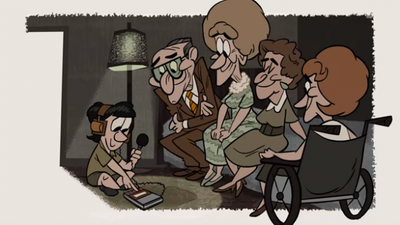Telling fact from fiction is becoming more and more challenging as people consume information through multiple channels, 24 hours a day. For young people, the challenge of interpreting the news is especially great. The News Literacy Project, a nationwide initiative to teach media literacy in schools, is seeking to make that process easier for America's youth.
Through a targeted curriculum and activities designed to get students thinking about where news comes from, the News Literacy Project asks students to question every piece of information they get and find out whether what they're reading, hearing or watching is factual. Those behind the News Literacy Project say that if today's generation of students can't learn these distinctions, then well-researched, quality journalism could fall by the wayside in the future.
"If young people don't value quality journalism, don't look for it, don't actually demand it, then it may cease to exist," said Alan Miller, the founder of the News Literacy Project. "If they can't distinguish between the value of work that is gathered with these kinds of standards and in an effort to present it dispassionately and fairly and with different points of view, then why would they ever seek out quality journalism?"
Quotes
"A century ago, Mark Twain said that a lie can get halfway around the world while truth is still putting on its shoes. In this hyperlinked information age, a lie can get all the way around the world and back while truth is still getting out of bed." - Alan Miller, News Literacy Project
"If you didn't cite the sources, people would think, "oh, they're just trying to make another big news story to add on to all the hype that they're putting on." If you do put the sources, people are like, "we know that this has a factual basis." - Student
Warm Up Questions
1. Where do you get news from?
2. Why is it important to tell fact from fiction when you're reading, viewing or listening to a news story?
3. What does the term "quality journalism" mean to you?
Discussion Questions
1. How do you tell if a news story is factual or not? Why might it be hard to tell sometimes?
2. Why is news literacy important?
3. What is the purpose of journalism?
Additional Resources


